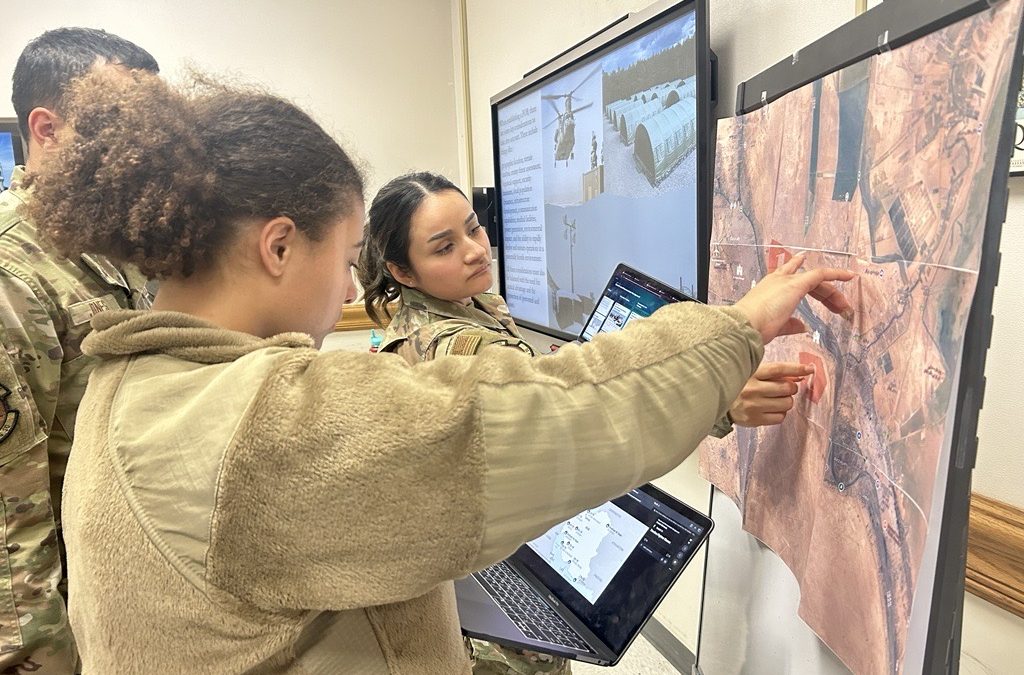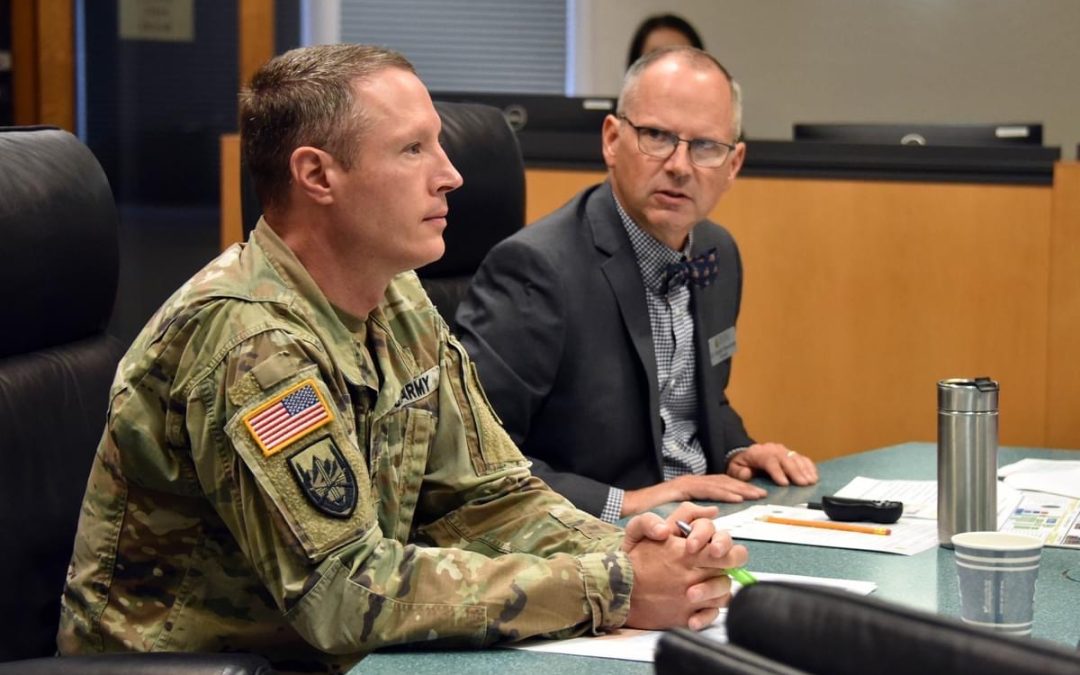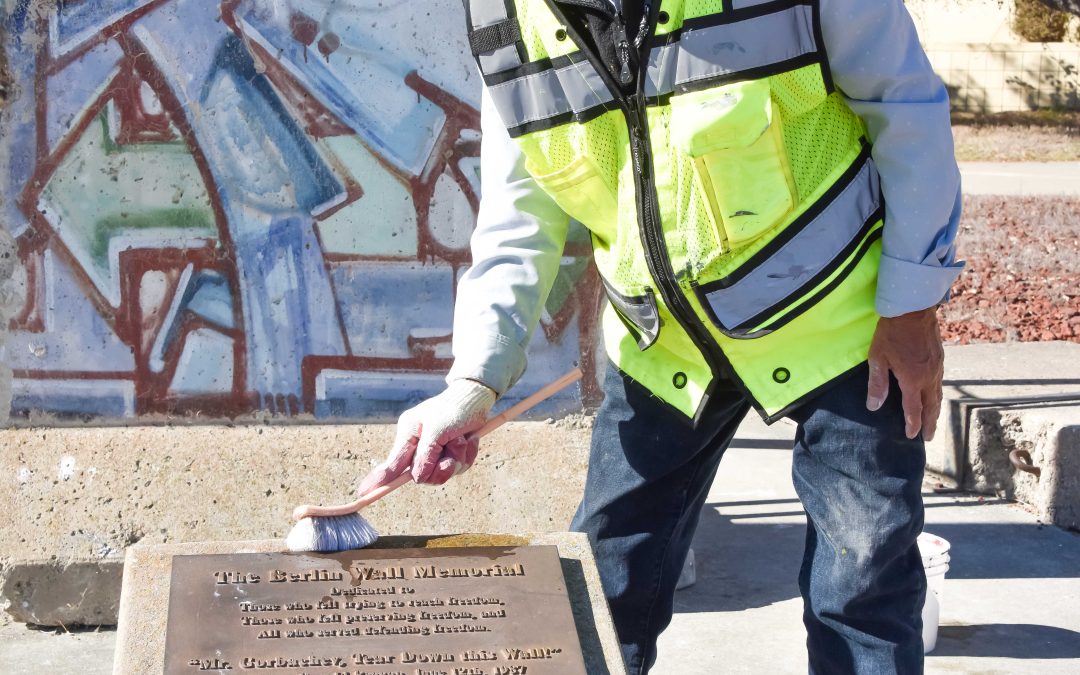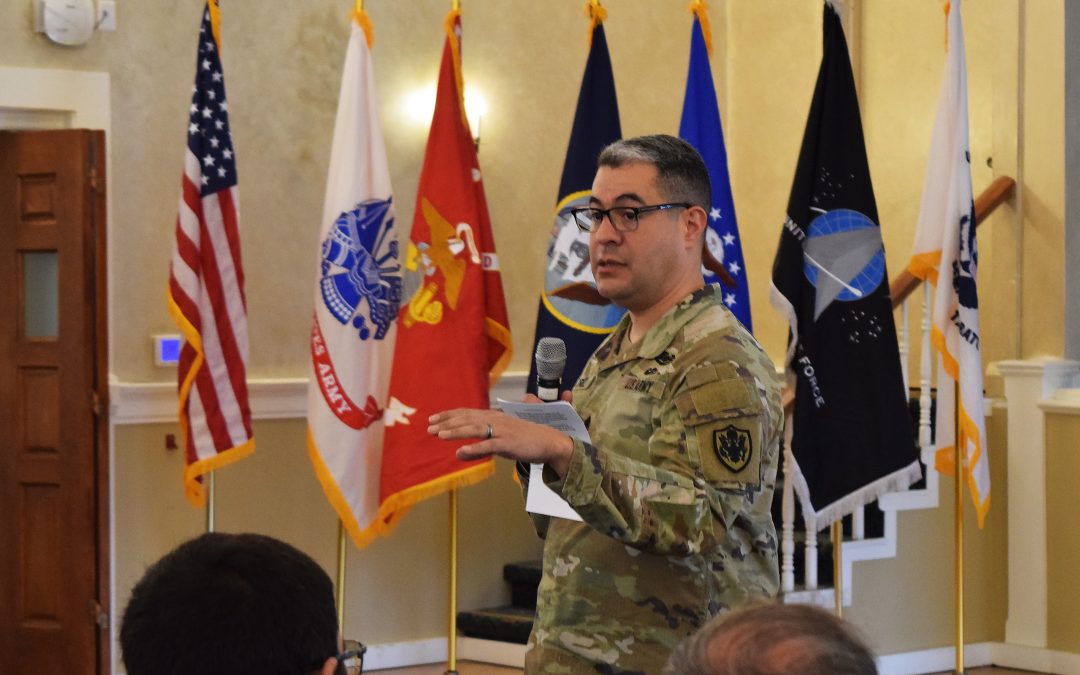By Patrick Bray
DLIFLC Public Affairs
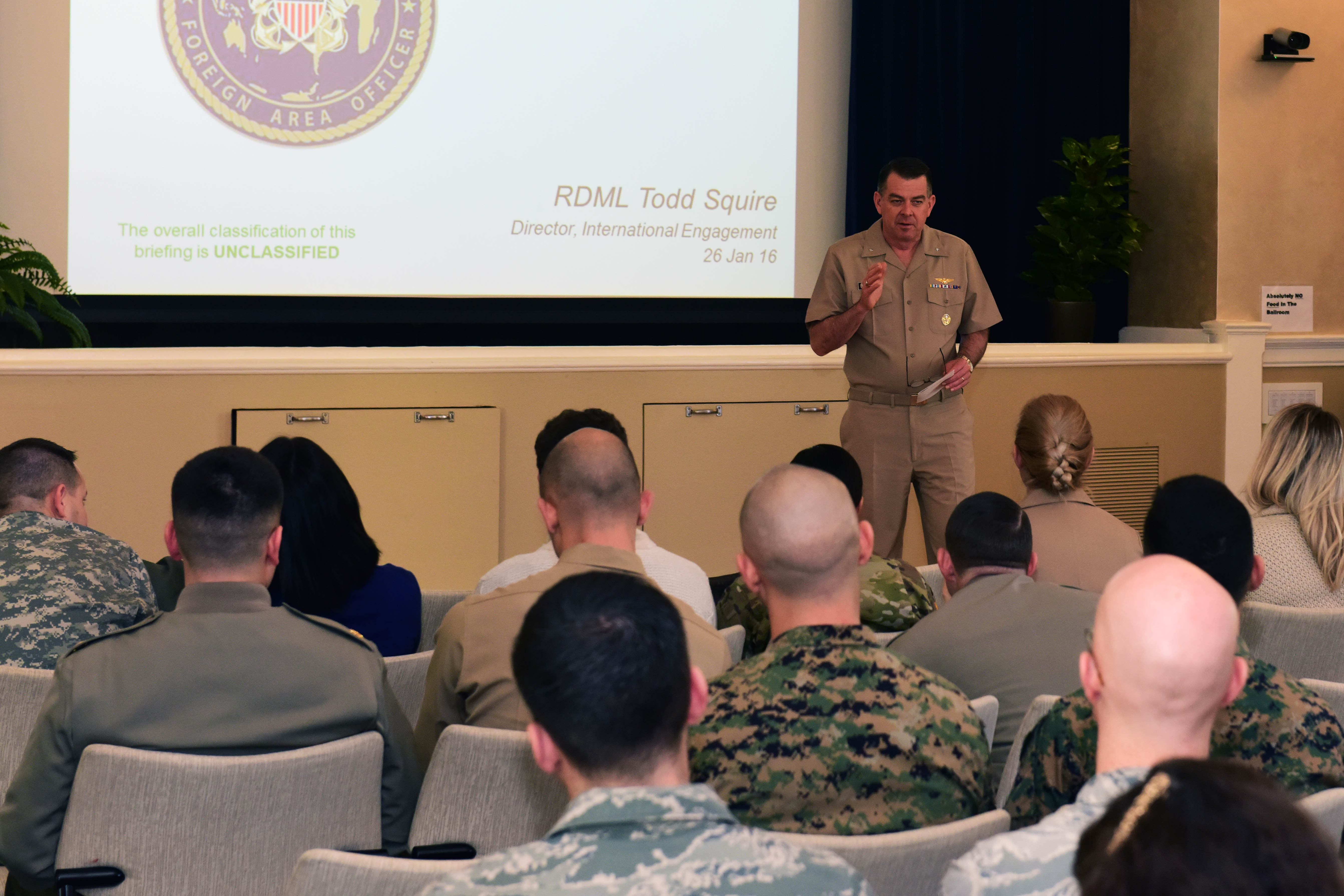
Rear Adm. Todd Squire, director for international engagement, Office of the Chief of Naval Operations, at the Pentagon in Washington, D.C., spoke briefly about the FAO role in security cooperation Jan. 26. (Photo by Patrick Bray, DLIFLC Public Affairs)
MONTEREY, Calif. – The Defense Language Institute Foreign Language Center hosted the Joint Foreign Area Officer Course Jan. 25-29 at the Weckerling Center on the Presidio of Monterey.
FAOs, who come from the four branches of the U.S. military, are regionally focused and are considered experts on political-military issues. Once their FAO training is completed, they are expected to serve as defense attachés, security cooperation officers and political-military planners worldwide.
Rear Adm. Todd Squire, director for international engagement, Office of the Chief of Naval Operations, at the Pentagon in Washington, D.C., spoke briefly about the FAO role in security cooperation Jan. 26.
Squire defines security cooperation as DOD interaction with foreign defense establishments to build relationships that promote specific U.S. interests.
“It sounds daunting, but at the end of the day, it’s really not that hard,” said Squire.
Squire said that a good beginning is to understand the U.S. codes and recommend that FAOs learn these among other policies. Security assistance under Title 22 is a Department of State responsibility and security cooperation under Title 10 is a Department of Defense responsibility.
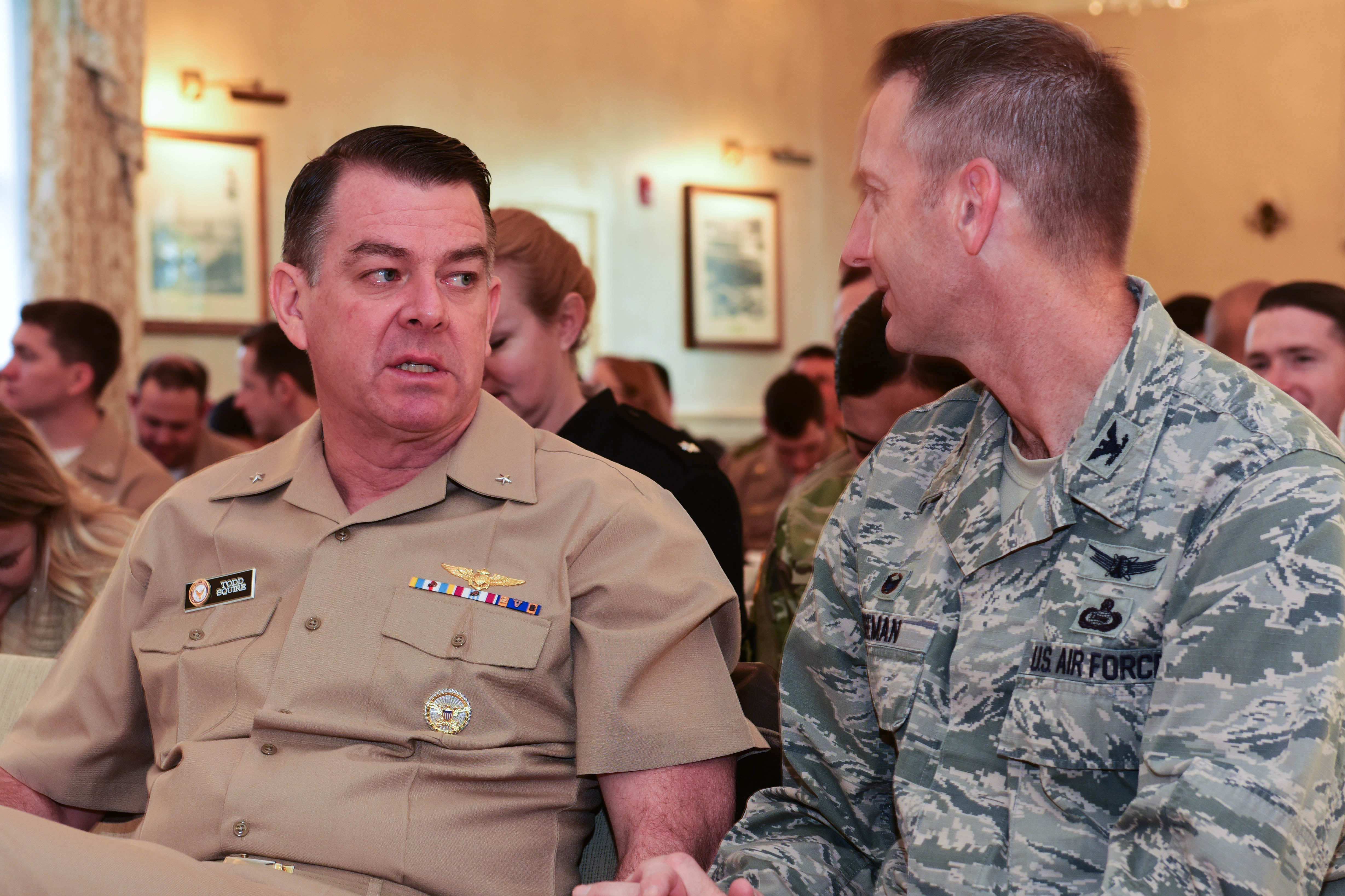
Assistant Commandant of DLIFLC, Col. Keith Logeman, speaks with Rear Adm. Todd Squire at the Joint Foreign Area Officer Course Jan. 26. (Photo by Patrick Bray, DLIFLC Public Affairs)
Between State and DOD, Squire echoed what many speakers at this and previous Joint Foreign Area Officer courses said – FAOs have many bosses and to get used to that, but to remember that the ambassador is the President’s direct representative in a foreign country and the closest at hand.
However, not everything is just work. Squire also wants FAOs to enjoy the experience of being a FAO as he enjoyed all of his assignments abroad. He is a two-time graduate of DLIFLC in German in 2002 and Turkish in 2010, and he served in Japan, Germany, Turkey and India. He offered some language and cultural advice to the FAOs.
“I have a Turkish tutor right now because I have to maintain my language,” said Squire, who currently lives in the Washington, D.C., area but continues to study. “We spend a lot of time learning about foreign cultures otherwise we wouldn’t be FAOs.”
Later that afternoon, Squire joined with former ambassador to Fiji David Lyon and Col. Andrew Berrier, former U.S. defense attaché in Kazakhstan, to form a panel to answer questions and concerns from the future FAOs.
When asked about the hardest part of being a FAO, Squire said “My hardest adjustment was coming back to the U.S.”

